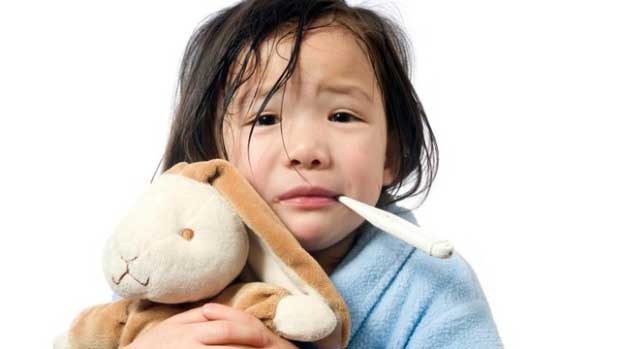
It happens to every parent, and if it hasn’t happened to you yet, be patient. It will come. Your child is not feeling well, and when you touch his or her forehead, you notice it’s hot to the touch.
You rush to get out the thermometer, but what happens once you take your child’s temperature? Do you call the doctor, regardless of how high or low the fever seems to be?
The simple answer is no. What you do in response to a fever depends on how old your child is and what the thermometer says.
Infants and babies younger than 1 year old
Here are the guidelines for babies 1 year old or younger:
- If your baby is 3 months old or younger, you should call the doctor if his or her temperature is 100.4 degrees or higher.
- Infants’ immune systems aren’t fully formed yet at that age, so they are more susceptible to serious infections, including bacterial meningitis and pneumonia. Sometimes, fever is the only symptom you’ll notice.
- If your baby is between 3 and 6 months old, you can wait until his or her fever hits 101 degrees, doctors say.
- If your baby is 6 months or older, you can hold off on calling the doctor until the fever gets to 103 degrees, with a crucial exception to that rule: Call the doctor immediately if the fever is 102 degrees or higher and the baby shows one or more of the following symptoms: a cough, a sore throat, a runny or stuffy nose, body aches, headaches, chills, fatigue and diarrhea.
The most important thing to watch for in your baby when it comes to fever is dehydration.
Here are some things you can do to make sure your baby doesn’t become dehydrated:
- If you breastfeed, nurse more frequently. Try to get the baby to take each one of your breasts for one to two minutes every 10 minutes.
- If you feed your baby with formula in a bottle, feed your baby more often to make up for lost fluids. How much extra fluid should you feed them? A newborn should get as little as 1 ounce more at each feeding, and a 1-year-old should get as much as 3 ounces extra.
- If you think your baby still isn’t getting enough fluids, call your doctor and see if you need an oral rehydrating solution.
- If your baby eats cereal, you can also use cereal to help rehydrate him or her, and you can also try strained bananas or mashed potatoes – but only if your baby has eaten them before.
If you have tried all of these things and you still can’t get your little angel’s fever down to an acceptable level, bring him or her into an Urgent Care clinic so we can help him or her feel better.
